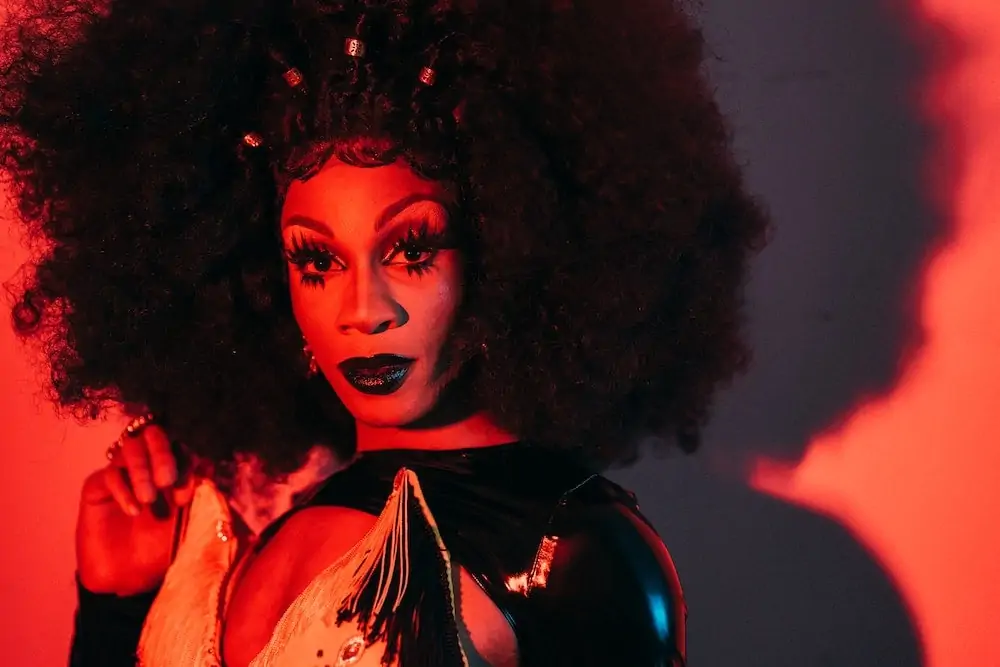Did you know that every year we celebrate LGBTQ+ History Month in October?
As we celebrate some of the pivotal moments in queer history every year, it’s important to look back on one of them in particular — the Stonewall Riots.
In the spirit of this History Month, let’s take a look at why this event is so important in the LGBTQ+ community, what exactly happened, and some of the leaders who fought for our rights.
Download HER app
The reason the Stonewall Riots is such an important event in the LGBTQ+ community to this day is that the uprising became a major catalyst in the gay rights movement.
At the time of the riots, being gay, lesbian, bisexual, or transgender was frowned upon and certainly not supported by the public.
In fact, did you know that having same-sex relations was actually illegal at that point?
Even though the LGBTQ+ community still continues to fight for equal civil rights today, it’s important to look back and celebrate how far we’ve come.
We’re not there yet, but we’re well on our way!
A Timeline: What Exactly Happened at Stonewall?
”It was the summer of ‘69…”
Yes, just like the song. On an early morning on June 28, 1969, undercover police raided a popular gay bar in Greenwich Village, New York — the Stonewall Inn — for a second time that week.
The bar was known as a haven and safe place for the city’s LGBTQ+ crowd. Patrons would actually bring their own alcohol because the bar didn’t have a liquor license.
Yet police had recently started to harass the customers because of their sexual preferences and had confiscated all of the alcohol on the premises the Tuesday prior.
That day, police began arresting both patrons and employees in an attempt to shut the bar down for good.
The Stonewall Inn had been known for welcoming drag queens and transgender patrons when other bars wouldn’t have them.
Sadly, at the time, it was illegal to “masquerade” as the opposite sex.
This is why, according to multiple sources, the police targeted transgender women and cross-dressing customers in particular during the raid.
Eight police officers violently took as many patrons as they could into custody, some of which had begun fighting back.
Watching this all go down, the remaining customers of the bar and its allies began chanting — they had grown tired of the discrimination and abuse they had been receiving from police.
The scene attracted neighborhood onlookers of residents and tourists, who joined in as well.
Then, according to multiple witnesses, a woman being shoved into a police car yelled “Why don’t you guys do something!”
That’s when the uproar began — bricks and bottles went flying through the air as people in the neighborhood started to protest along with the patrons who hadn’t been arrested.
The situation quickly escalated and became too much for the police.
Along with other violent outbursts, the protesters marched through the streets of New York for six long days.
The Stonewall Riots is said to have sparked the gay rights movement because it was the first huge protest for LGBTQ+ rights.
What started as a violent protest became an annual parade through the streets — the Gay Pride parade.
On June 28, 1970, activists marched throughout the streets of New York, Chicago, Los Angeles, and San Francisco on the anniversary of the Stonewall Riots for the first Pride parade.
Don’t Forget the Leaders
The protesters who participated in the Stonewall Riots that morning and in the days to follow are known as the “Stonewallers.”
Although it’s impossible to say how many people were involved, some Stonewallers publicly shared their stories at the time. These were some of the known key figures:
Stormé DeLarverie was a butch lesbian who is said to have started the riots that first day at the inn. She was both a gay rights activist and a singing drag king who was known for wearing a white tuxedo on stage.
It’s said that a police officer pushed her during the raid and she responded by punching him in the face. This sparked four officers to attack and handcuff her.
It’s said that the riots started as soon as onlookers saw a policeman hit her in the head with his baton.
An African American trans woman by the name of Marsha P. Johnson was a regular customer of the bar and one of the known leaders of the Stonewall Riots.
Many eyewitnesses at the scene had named her as one of the initiators of the protest at the time.
She was a colorful, bold, and outspoken woman who went from living on the streets to becoming one of New York’s most successful drag queens.
17-year-old Sylvia Rivera, a close friend of Marsha P. Johnson, was also a frontliner at the Stonewall Riots that day.
Many bystanders confirmed that she was an instigator of the riots and the second customer to throw a cocktail at the police.
A Latina American drag queen, she later became known as one of the most iconic gay and transgender advocates in history.
She and Marsha P. Johnson co-created the STAR (Street Transvestite Action Revolutionaries) organization for homeless transgender people.
The fourth known leader of the Stonewall Riots was known as Miss Major Griffin-Gracy.
Also an African American trans woman, she was taken into custody by police that first day of the riots — but not before they broke her jaw and knocked her unconscious.
They kept her in prison for a shocking total of five years, but she continued her work as an activist after her release.
While there are thousands of people who have never gone on record to talk about their experiences at the Stonewall Riots, it’s still important to remember them as a whole.
After all, these leaders helped transform the LGBTQ+ community into what we know it as today.
The same way the Stonewall Inn was a haven for LGBTQ+ people, HER is a safe community for queer folk.
It’s the world’s fastest-growing app for queer womxn — and it’s free to sign up!
Whether you identify as lesbian, gay, bisexual, transgender, or queer, you can find millions of like-minded people on HER for friendship, dating, and love.
HER is a safe and inclusive place where you can meet other women both online and offline.
You can catch up on the latest news in our forums, find HER-sponsored LGBTQ+ events near you, and chat with other queer women who are looking for the same thing as you.
It’s time to find your community — download HER now!
Download HER app







